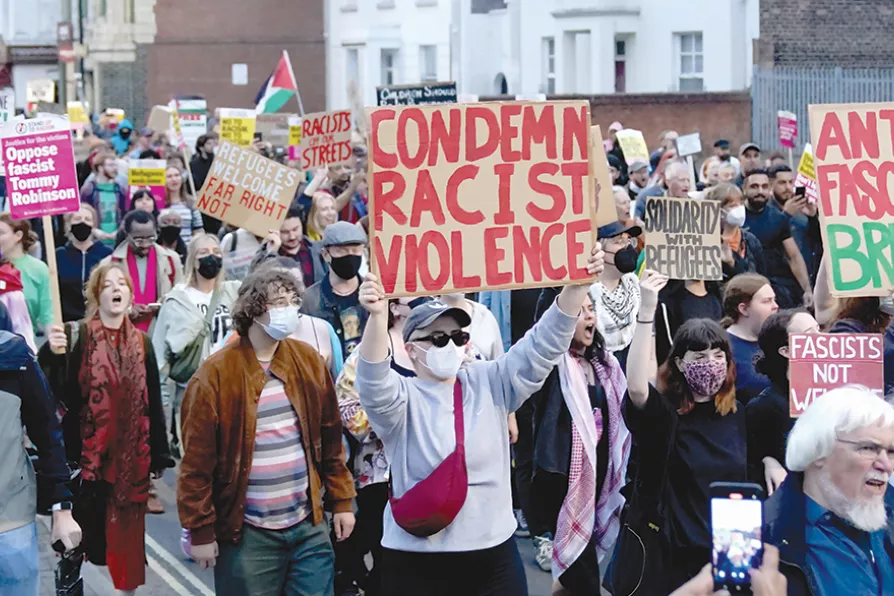Labour prospects in May elections may be irrevocably damaged by Birmingham Council’s costly refusal to settle the year-long dispute, warns STEVE WRIGHT

 THEY SHALL NOT PASS! Demonstrators at an anti-racist protest
in Birmingham, above, and in Walthamstow, London, below, on Wednesday August 7 2024
THEY SHALL NOT PASS! Demonstrators at an anti-racist protest
in Birmingham, above, and in Walthamstow, London, below, on Wednesday August 7 2024
LET’S start with the language and analysis. The tidal wave of racist gatherings that swept across Britain was designed for riot, not protest.
It isn’t enough to describe them in terms of mindless violence, working-class bigotry or plain ignorance.
Behind the ugliness lies an organised attempt to undermine British democracy, divide working-class communities and shift political attention from redistribution to retribution.

The ban on Maccabi Tel Aviv fans was based on evidence of a pattern of violence and hatred targeting Arabs and Muslims, two communities that have a large population in Birmingham — overturning the ban was tacit acceptance of the genocidal ideology the fans espouse, argues CLAUDIA WEBBE

CLAUDIA WEBBE argues that Labour gains nothing from its adoption of right-wing stances on immigration, and seems instead to be deliberately paving the way for the far right to become an established force in British politics, as it has already in Europe

ALAN SIMPSON warns of a dystopian crossroads where Trump’s wrecking ball meets AI-driven alienation, and argues only a Green New Deal can repair our fractured society before techno-feudalism consumes us all












